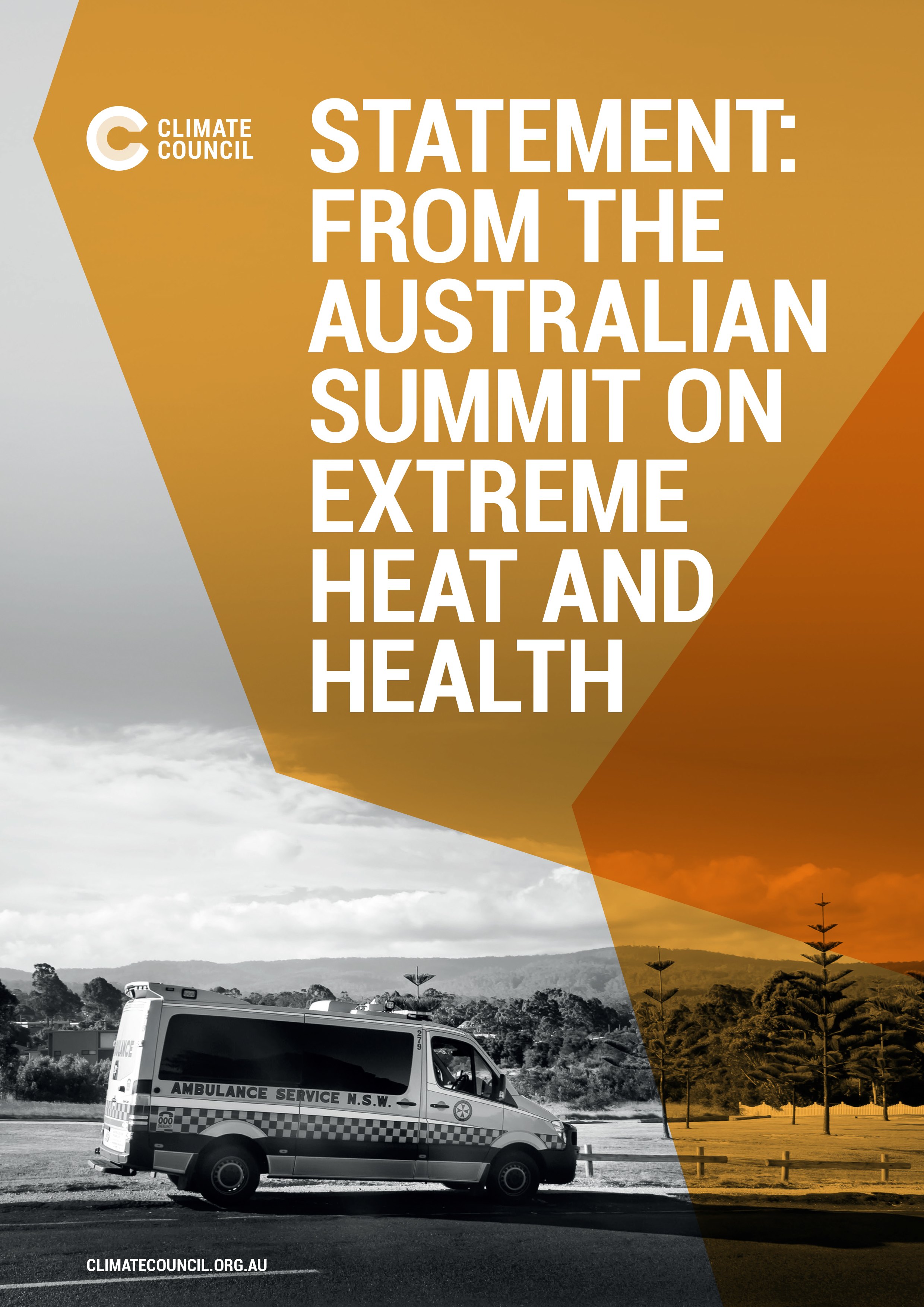For the last two days, twenty-four experts representing a wide variety of disciplines including emergency management and medicine, nursing and midwifery, workplace health, health policy, community services, planning and the built environment, environmental science, and physiology, came together to discuss how to improve Australia’s preparedness for increasing extreme heat.
All the experts agreed that extreme heat is a critical and growing health issue for Australians. While the health sector is key, it is only one part of the response.
Summit co-chairs Professor Fiona Stanley, Professor Lesley Hughes and Dr. Liz Hanna, joined by key summit participants, issued the following statement, which you can also download here:
Three key actions are needed to more effectively address the health and health sector impacts of heatwaves:
1. PREVENT AND PREPARE: tackle the health impacts of heat extremes by:
a. Mitigating, adapting and building resilience to the challenges of extreme heat
b. Incorporating climate-sensitive urban design into planning our cities and towns. This includes smart infrastructure, housing, energy, water, shade and precinct planning.
2. RESPOND: a whole of government response is required, including all levels of government across all states and regions. This response should include:
a. The acknowledgement of heatwaves as a hazard
b. The real time release of impact data and forecasts by government agencies during and immediately following a heatwave, including data on the correlation between heatwaves and mortality/morbidity
c. Development and implementation of a scaled response to heatwaves, similar to the scaled bushfire response
d. Improved understanding of the impacts of heatwaves on human health, the environment, infrastructure and the economy, now and into the future
e. The assessment of current and future response capacity to heatwaves
3. EDUCATE: We need to build awareness about heatwave risks, and develop effective warnings for the public, health and community services, and the Australian workforce.
a. Education should be supported by evidence-based advice and analysis of heatwaves and health impacts.
b. Behavioural and cultural change is required to prevent and reduce heat stress.
c. Health and community services require improved support to assist vulnerable groups.
d. Educate workforces about heat stress and how it affects them.
It is vital that Australian governments, at all levels, continue to address this significant and growing issue to reduce the impact of heatwaves on Australian’s health and on the health and community sectors and, ultimately, to save lives.
This Communique is signed by the Australian Summit on Extreme Heat and Health Co-Chairs:
Dr. Elizabeth Hanna, Professor Lesley Hughes and Professor Fiona Stanley
